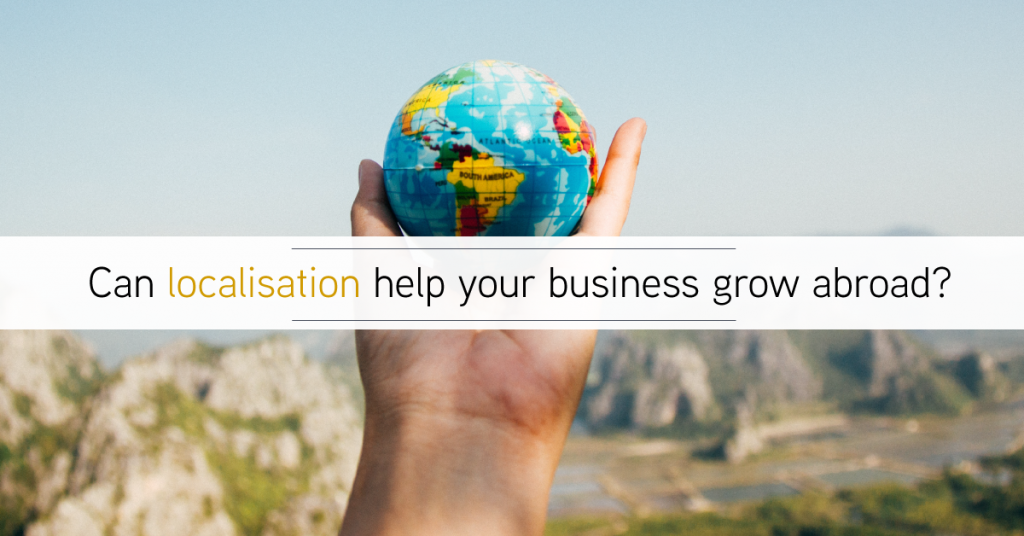Is Localisation important for your business?
If you’re considering expanding your business to a country where English isn’t a native language, in order to succeed, it’ll be essential to translate and carefully localise your marketing materials.
Translation is important in business because people feel more relaxed using their own language. When consumers and B2B clients are thinking about making a purchase or using a service, they want to be able to communicate effectively.
Localisation is an extremely important aspect of your international marketing strategy. Why? Because if you wish to attract the consumer, you’ll need create a friendly and responsible brand image. Therefore, putting your content into their native language, presenting images and other visuals which reflect their culture, values and customs will increase the chances that the potential customers stay on your website, explore it and finally commit to a purchase. What’s also significant to bear in mind, is that according to a recent study, more than 80% of customers are more likely to complete a purchase, if the information about a product or a service is available to them directly in their native language.
The key objective of a localisation service is to reflect the culture of a country and customers your brand wishes to target. Often, a simple word for word translation, quite simply, isn’t sufficient enough as it doesn’t take into consideration some factor, which are important during a business internationalisation. Localisation focuses not only on linguistic aspects, but also takes into account visuals; making sure that any cultural, religious, historical or even political factors are carefully modified to specifically suit your target audience. Fortunately, this is where a professional language translation agency can help.

What factors does localisation consider?
Colours
Colours are very important in some cultures and they have an entirely different meaning from one country to another. Take white for instance; in the Western cultures, this colour represents freshness and cleanness, and so we can often observe it in advertisements of beauty or cleaning products. in some Asian cultures such as China, Japan or India however, it is a colour which represents death and mourning. As a result, when localising your content, ensuring that colours are considered for their cultural significance is extremely important.
Visuals
Similarly to colours, certain visuals, which were used in your original campaign, may not be quite appropriate to use within a new, foreign country. For example, in many middle eastern countries, alcohol is strictly prohibited, and so including it in your content, which targets that particular region of the world may not be a wise choice.
Social Media
If your business has a Facebook or Twitter accounts where you engage with customers, you’ll most likely understand the importance of social media presence within the corporate world. Nonetheless, customers in some countries may not able to use the platforms which are popular in Europe. China, for instance, has its own platforms because Facebook and Twitter are prohibited. Russia too has a popular network. Research your market carefully to take these differences into account, as it will allow you to fully engage with your customers.
Linguistics
Linguistic factors, although also a part of a standard translation, are still an extremely important aspect of a professional localisation. The language you chose to use within your international campaigns can determine, or at least strongly influence, how your brand is welcomed and perceived abroad. A standard translation may focus on the word-for-word conversion, wheres localisation takes into account cultural factors, and alters the language so that it is natural and suitable for your target audience.
As you can see, localisation is a complex process, which focuses on making sure that your content or marketing campaigns are fully adjusted and ready for the target audience. When approaching a foreign market, doing so in its native language and with respect to its particular customs, culture and beliefs can go a truly long way. Creating a considerate and friendly brand image can influence how your company is welcomed abroad, and as a result, can directly impact your revenue. If you’re considering approaching foreign markets and would like to learn more about our localisation services and how they can help your business grow abroad, get in touch with us today on info@languagereach.com and we’ll be more than happy to discuss your needs!
